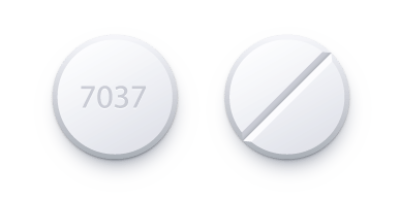
Testosterone Lawsuits
Testosterone lawsuits claimed testosterone replacement drug manufacturers failed to warn of serious side effects. Many lawsuits named Abbvie’s testosterone drug, Androgel. In 2017, Abbvie was ordered to pay $150 million in punitive damages. It tentatively settled 4,200 AndroGel lawsuits in September 2018 but did not disclose the settlement amount.
- Legally reviewed by Tess Schulman, Ph.D.
- Last update: April 16, 2025
At the height of the testosterone litigation, more than 25,000 lawsuits had been filed against AbbVie Inc., Eli Lilly & Co., Pfizer Inc., Endo International and other manufacturers. Cases involved popular products such as AndroGel.
They claimed men who used the drugs experienced side effects such as heart attacks, strokes or blood clots called pulmonary embolism and deep vein thrombosis. Most of the injuries, with the exception of death, had to occur within 90 days of using the product for a person to be able to sue.
Because of the large number of manufacturers and cases, the U.S. Judicial Panel on Multidistrict Litigation created a testosterone multidistrict litigation, or MDL, in June 2014. U.S. District Judge Matthew F. Kennelly oversaw the MDL, formally called MDL-2545 IN RE: Testosterone Replacement Therapy Products Liability Litigation.
More than a half-dozen cases went to trial with mixed results, and AbbVie, Eli Lilly, Endo International, Auxilium Pharmaceuticals, GlaxoSmithKline and Allergan tentatively reached confidential, global settlements for thousands of cases.
As of March 2025, the MDL had been closed and no federal cases remained in Illinois federal court.
Accusations Against Manufacturers
Lawsuits filed in federal court all made the same allegation: Manufacturers of testosterone products put healthy men in danger by marketing the hormone to treat sexual dysfunction, age-related fatigue and other symptoms that go beyond the use approved by the U.S. Food & Drug Administration.
The FDA approved these drugs for use in the treatment of a medical condition known as hypogonadism, but drugmakers widely marketed the products for off-label use for a condition they allegedly invented and call “Low T.”
Lawsuits accused makers of testosterone products of marketing the products as safe and effective for this off-label use, when in fact, the products reportedly provide little or no benefit for men without hypogonadism, and the drugs can cause cardiovascular issues and death.
| Brand | Manufacturer |
|---|---|
| AndroGel | AbbVie Inc.; Abbott Laboratories Inc.; AbbVie Products; Unimed; Solvay; Besins Inc.; Besins S.A. |
| Depo-Testosterone | Pfizer Inc.; Pharmacia & Upjohn Inc. |
| Foresta | Endo Pharmaceuticals |
| Delatestryl | Endo Pharmaceuticals |
| Testim | Auxilium Pharmaceuticals Inc.; GlaxoSmithKline; Endo Pharmaceuticals |
| Testopel | Auxilium Pharmaceuticals Inc.; Endo Pharmaceuticals |
| Striant | Auxilium Pharmaceuticals Inc.; Endo Pharmaceuticals |
| Androderm | Allergan; Actavis Inc., Actavis Pharma Inc., ALU, and Anda, Inc. |
“Low-T” Marketing
According to lawsuits, testosterone ads suggest decreased energy levels are caused by Low-T rather than by aging or any number of other factors. Websites and TV ads show middle-aged men longing to rejoin sporting activities and ask men if they’ve lost their energy. Direct-to-consumer marketing quizzes set men up to believe that natural signs of aging point to a testosterone deficiency and encourage them to seek replacement therapy.
Eli Lilly, AbbVie and other testosterone product manufacturers face criticism for these and other tactics. They created a $1.6 billion market for testosterone replacement drugs, and critics say they haven’t done enough to inform consumers and doctors about potential risks.
“[Low-T marketing] has directly related to AndroGel’s sales increasing to over $1.37 billion per year and Axiron’s sales increasing to over $178.7 million per year.”
According to a report by The McClatchy Company, a whistleblower lawsuit filed in federal court in Texas alleged that Solvay Pharmaceuticals used improper sales practices to market AndroGel.
The drugmaker allegedly recruited doctors to help AndroGel “ride coattails of Viagra” by encouraging them to screen patients seeking Viagra for low testosterone. A former sales manager involved in the lawsuit attributes AndroGel’s high sales to the company’s decision to promote the drug for off-label uses even though it isn’t approved to treat erectile dysfunction (ED) like Viagra is.
Additionally, these misleading marketing tactics unnecessarily exposed people to the serious side effects of the hormone despite multiple warnings from the FDA regarding the risks to men, women and children.
-
April 22, 2009
The FDA sent a letter to Solvay Pharmaceuticals Inc. informing the company that new safety information regarding secondary exposure should be included in the labeling for AndroGel.
-
April 22, 2009
The FDA sent a letter to Auxilium Pharmaceuticals Inc. informing the company that new safety information regarding secondary exposure should be included in the labeling for Testim.
-
May 7, 2009
The FDA announced it is requiring manufacturers of two prescription topical testosterone gel products, AndroGel 1% and Testim 1%, to include on the products’ labels a boxed warning — the agency’s strongest warning — for secondary exposure in children.
-
January 31, 2014
The FDA announced its plan to investigate the risk of stroke, heart attack and death in men taking FDA-approved testosterone products.
-
June 19, 2014
The FDA announced that it is requiring manufacturers to include a general warning in the drug labeling of all approved testosterone products about the risk of blood clots in the veins.
-
March 3, 2015
The FDA announced required labeling changes for all prescription testosterone products to reflect the possible increased risk of heart attacks and strokes associated with testosterone use.
AndroGel Litigation and Verdicts
AndroGel is the most widely used type of testosterone replacement therapy and faced the largest number of lawsuits.
In September 2018, manufacturer AbbVie announced it had reached a tentative settlement in 4,200 AndroGel lawsuits. The company did not disclose the settlement amount. AbbVie was the final company involved in the testosterone therapy MDL to reach a settlement.
Plaintiffs said AbbVie and its predecessor Abbott “deceived potential users by relaying positive information through the press, including testimonials from retired professional athletes,” Bloomberg reported. While promoting the benefits of the drugs, they downplayed the risks, lawsuits said.
One of the men who sued AbbVie was then-54-year-old Michael Gallagher of Virginia. He suffered myocardial infarction, congestive heart failure and other injuries after being prescribed the gel. He had no history of cardiac problems before taking the prescription drug. Gallagher claimed he started AndroGel therapy after the defendants’ advertisements led him to attribute symptoms to low testosterone.
“For people with truly low testosterone levels, the benefits outweigh the risks, but for millions of others, it’s in the same category as snake oil.”
Two types of AndroGel cases went to trial. The first cases involved plaintiff claims that the drug caused myocardial infraction (heart attack) or stroke. The second group contained cases that allege blood clot injury, including pulmonary embolism and deep vein thrombosis. The majority of verdicts have favored manufacturers.
Jeffrey Konrad
In June 2017, jurors began to hear the case of Jeffrey Konrad, a Tennessee man who says he suffered a heart attack after using AndroGel. However, the trial ended in a mistrial after an attorney was hospitalized for a heart problem. Konrad did eventually get a full trial in September 2017. A jury awarded him $140 million. A court overturned the verdict in July 2018, and a new trial was scheduled. But, MDL Judge Kennelly halted the trial because of settlement talks.
Jesse Mitchell
In July 2017 a second case went to trial. Attorneys for Jesse Mitchell told the jury that the Oregon man suffered a heart attack at age 43, four years after he started using AndroGel. Jurors deliberated for about four days. They concluded AbbVie’s negligence was not the cause of Mitchell’s heart attack. Still, the jury found the company liable for false marketing, or fraudulent misrepresentation, and ordered AbbVie to pay Mitchell $150 million. Kennelly later overturned that verdict. A second trial in March 2018, ended in a verdict of $3.2 million for Mitchell.
Robert Nolte
Robert Nolte alleged AndroGel use led to his pulmonary embolism on Nov. 1, 2012. He said he was 72 years old when a doctor prescribed him the drug, and he used it from August 2012 to December 2012. A jury in January 2018 sided with AbbVie.
Arthur Myers
In May 2018, jurors ruled for AbbVie. The plaintiff, Arthur Myers, was 37 years old when he started using AndroGel in June 2003. He continued using the drug through August 2008. He claimed it caused him to suffer a pulmonary embolism on Feb. 7, 2008, when he was 42 years old.
Robert Rowley
Robert Rowley lost his lawsuit in June 2018. He suffered deep vein thrombosis on April 27, 2013, at age 67. He had been using the product for one year.
Settlements for Axiron, Testim and Androderm
In December 2017, Eli Lilly and Co. settled about 400 cases that were part of the federal MDL. Details of the tentative settlement were not immediately disclosed. The cases involved people who claimed they were injured by the drug Axiron.
In November 2017, Endo won a trial in a case brought by, Steve Holtsclaw, a Tennessee man who alleged Testim caused his heart attack, Fierce Pharma reported. But in January 2018, Endo’s Auxilium Pharmaceuticals settled a lawsuit filed in state court in Philadelphia by a man who said Testim caused his stroke. The parties didn’t release details of that resolution. Then in June 2018, Endo announced it would pay $200 million to settle 1,300 Testim lawsuits. This included about 900 cases in the MDL.
In July 2018, Allergan finalized a settlement in more than 500 lawsuits involving the drug Androderm. The lawsuits named Actavis as the defendant, but Allergan took over Actavis in 2014. A trial involving the drugmaker had been scheduled to start Aug. 6, 2018.
Though the companies are settling, none of them is admitting fault.
Calling this number connects you with a Drugwatch.com representative. We will direct you to one of our trusted legal partners for a free case review.
Drugwatch.com's trusted legal partners support the organization's mission to keep people safe from dangerous drugs and medical devices. For more information, visit our partners page.


